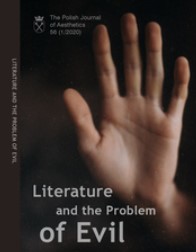Aesthetic Ethics without Evil. Aischron in Greek Popular Ethics
Aesthetic Ethics without Evil. Aischron in Greek Popular Ethics
Author(s): Michał BizońSubject(s): Ethics / Practical Philosophy, Aesthetics, Ancient Philosphy
Published by: Wydawnictwo Uniwersytetu Jagiellońskiego
Keywords: Metaethics; Evil; kalon; aischron; Popular Morality;
Summary/Abstract: In the paper I consider the Greek term aischron as a candidate for a moral concept of evil, focusing on popular rather than philosophical Greek ethical thought. I distinguish between a wide and a narrow concept of evil, focusing in the enquiry on the latter. A narrow concept of evil is limited to a moral meaning, referring to moral agents and actions. In this use evil represents the strongest negative evaluative term of moral agents and actions. I begin the analysis of aischron with a scrutiny of its positive counterpart, kalon. I synthetically discuss the ongoing discussion regarding its meanings. I then turn to the term aischron and its cognates and conclude that its meanings have a similar, albeit not identical, range to kalon. In both cases the semantic field of these terms include a functional, aesthetic, and ethical component. I further argue that these three components are interconnected which suggests that the various meanings of kalon and aischron are not homonymous. On this basis I argue that the functional and aesthetic components present fundamental difficulties for reading aischron as denoting moral evil.
Journal: Estetyka i Krytyka
- Issue Year: 56/2020
- Issue No: 1
- Page Range: 11-30
- Page Count: 20
- Language: English

